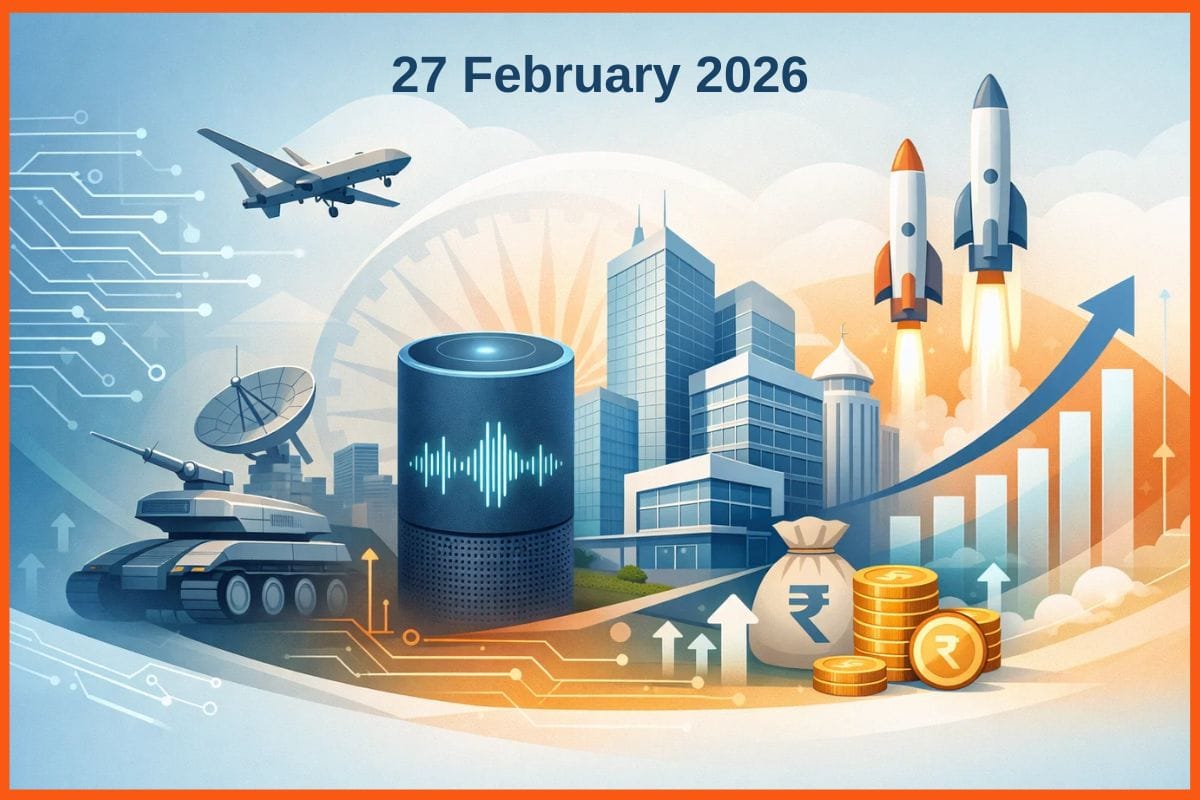How Are Startups Getting Affected by Rising Fuel Prices?
🔍Insights
The pandemic has hit the Indian economy hard. Consumer demand has fallen drastically and the supply side of the market has become vulnerable to shocks and crunches. But it’s not all for these entrepreneurs. The latest addition to their list of woos is the ever-increasing price of petrol, which is a key manufacturing ingredient for many chemical and pharmaceutical processes and the backbone of energy-driven service startups.
The price of petrol has galloped upwards through 2020 and touched all-time highs in June 2021. The government has sighted several reasons for this hike in petrol price but all those claims have been shot down by independent policy experts and economists, who claim the real factor behind this meteoric rise in the price of petrol is the indirect tax levied on it by the Government of India.
Several economists, energy policy experts, and trade have requested the government to reduce this indirect tax on petrol to help increase the profitability of these already hard-hit startups and these requests have been backed by the State Bank of India (SBI) and Reserve Bank of India (RBI) in their annual and quarterly evaluations. Now, let’s have a look at the impact of the rise in petrol prices on startups, in a sector-wise manner.
Impact on Startups In the Logistics Sector
Impact on Startups in FMCG (Fast Moving Consumer Goods) Sector
Impact on Startups in Appliances Industry
Impact on Startups in the Pharma Sector
Impact on Startups in the Core Manufacturing Sector
Impact on Startups in the Doorstep Service Industry
Impact on Startups In the Logistics Sector
The logistics sector is one of the hardest-hit sectors in the current economic scenario. The pandemic and rising fuel prices have helmed the conquest against this sector and have succeeded in closing doors for many budding startups and as well well-established companies.
With the increase in diesel and petrol prices, the startups in the logistics sector have been forced to increase the cost of their services to just breakeven and this, in turn, has led to shrinkage in demand.
Freight owners have complained about the lack of two-way cargo trips and how it has affected their profit model and them vulnerable to losses. Overall, the country's mobility has been hard hit by this upward climb in the price of petrol.
The Reserve Bank of India has cautioned the government about the same in its reports on the Indian Economy and the depressionary spiral that the startups and MSMEs of this sector have become prone to, following the price of petrol and other energy commodities like diesel.
Impact on Startups in FMCG (Fast Moving Consumer Goods) Sector
Fast Moving Consumer Goods can be defined as products that are sold quickly over the counter and are bought by most consumers, irrespective of their preferences like biscuits, candies, medicines, etc. Due to the steady demand for these goods, the goods have to be shipped continuously to maintain the supply.
The startups here have faced acute problems with the rise in fuel prices. Due to increased freight costs and distribution costs, the cost of the products has gone up, which has led to the shrinkage of demand for the durable goods produced by these startups.
All this increased distribution has caused the firm to not even break even and decimated its profits. Also, like fuel is a key ingredient in meeting the energy demands of the production plants and some manufacturing processes, the inflationary push has caused extra trouble for the startups in the FMCG sector.
Impact on Startups in Appliances Industry
Currently, this sector is valued at 85,000 crores, and alone the domestic appliances sub-circuited is estimated to be 35,000 crores. The sector used to be one of the most thriving playgrounds for startups. But the increase in manufacturing and transporting costs owing to an increase in fuel prices have hard-hit many budding startups. Also, this increase in petrol and diesel prices has caused a cost-push in raw material, component supply, and operational costs.
Impact on Startups in the Pharma Sector
The pharma sector is no stranger to the hardships of increasing oil prices. Petrol and diesel play a huge role in the manufacturing aspect of this industry. The rise in the cost of fuel has, in turn, raised the cost of petrochemical raw inputs and the cost of operating the manufacturing unit.
Also, to maintain a steady supply of drugs in the markets, startups here have to maintain well-equipped fleets of freights. With the rise in the cost of petrol and diesel, the cost of maintaining and distributing the product through such a logistic mechanism has become excruciatingly expensive for startups to maintain.


Impact on Startups in the Core Manufacturing Sector
The core manufacturing sector acts as the backbone of our economy. Being on the most thriving playground for MSME startups, this sector has become the subject of many complex backlashes and ripple effects that accompany an increase in the price of an essential energy commodity like petrol.
The cost of production and maintenance of plants has shot up rapidly with the increase in fuel price. Petrochemical components have become costlier, along with the logistic cost of acquiring these key components of the manufacturing process.
The transportation cost of the finished product and distribution cost has pushed the market price to rise to combat the effects of the rise in diesel price. However, this increased shelf price has been met with a rapid demand shrinkage, which has put this sector in a difficult economic spot.
Impact on Startups in the Doorstep Service Industry
The doorstep service industry relies on the commitment to procure and provide already available services at the cheapest rate possible. The increase in petrol price has become a great impediment for the sector, as the logistic costs have risen sharply.
In the past few years, several internet-based startups have come up in this sector, but today most of them have had to close shop and the remaining strive hard to break even. Many economists suggest, that if the fuel price rises any more, the valuation of this industry can fall greatly, and most startups will fail to maintain their business model in the long run.
Conclusion
Thus, we can conclude the rampant increase in petrol price has a detrimental effect on the startup atmosphere of the country, irrespective of whichever sector they belong to. A further surge in petrol prices may become the key reason for the closing of startups in the coming months. However, it can be expected that the government will pay heed to the petrol price policy advice given by the apex bank, and eminent economists and reduce the petrol price to create a more business conducive atmosphere.
FAQs
What is the effect of the increase in the price of fuel?
The rise in fuel price affects the price of other essential goods as the transport costs increase. It also leads to inflation which affects businesses.
Will higher fuel prices lead to inflation?
Yes, higher fuel prices lead to inflation as the fuel price impacts all the goods and services.
Must have tools for startups - Recommended by StartupTalky
- Convert Visitors into Leads- SeizeLead
- Website Builder SquareSpace
- Run your business Smoothly Systeme.io
- Stock Images Shutterstock






